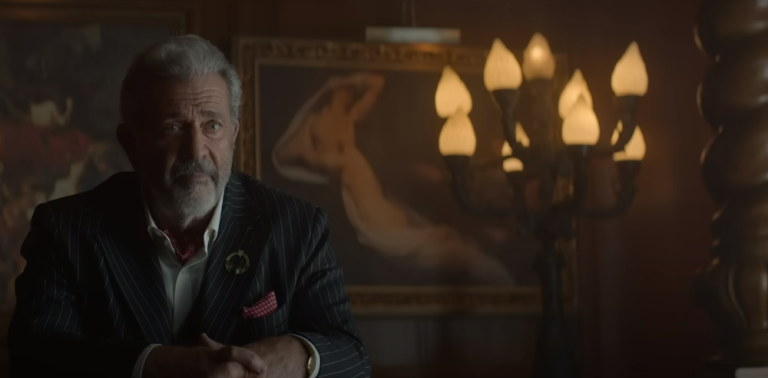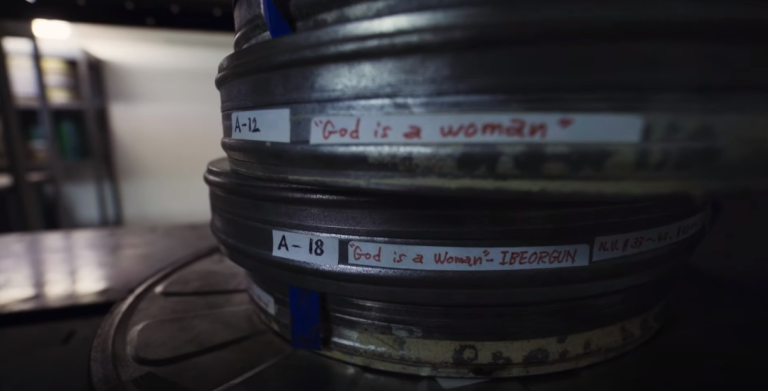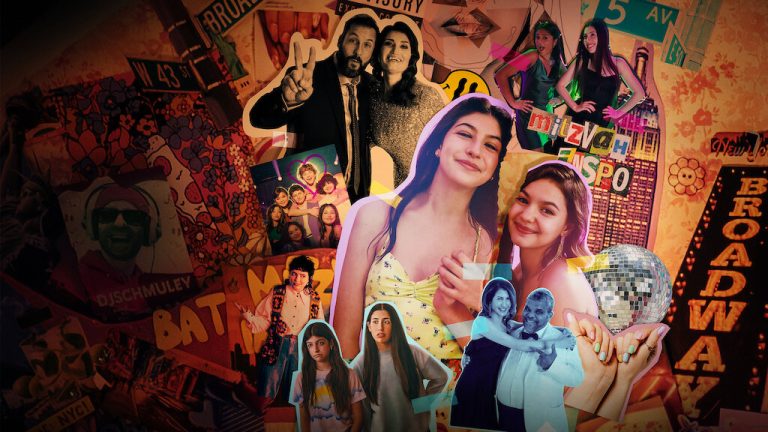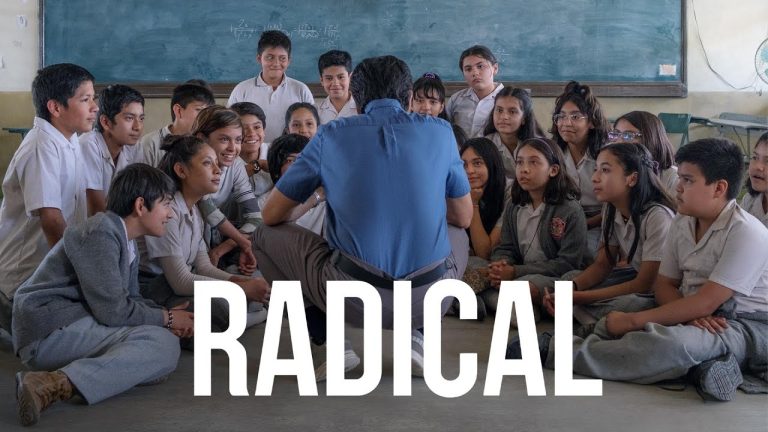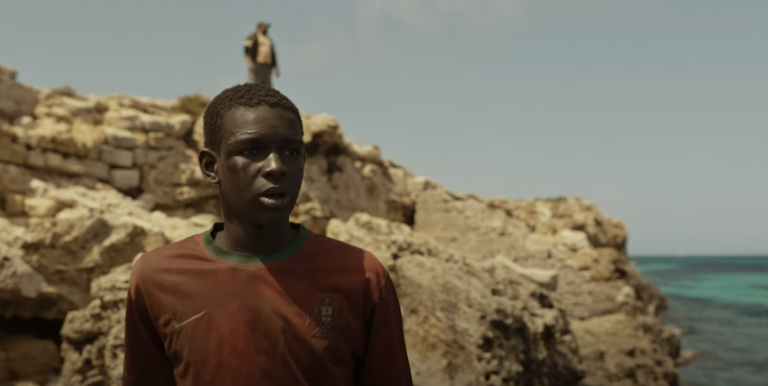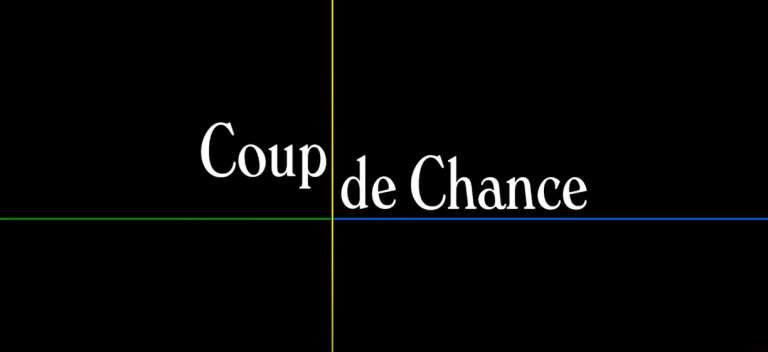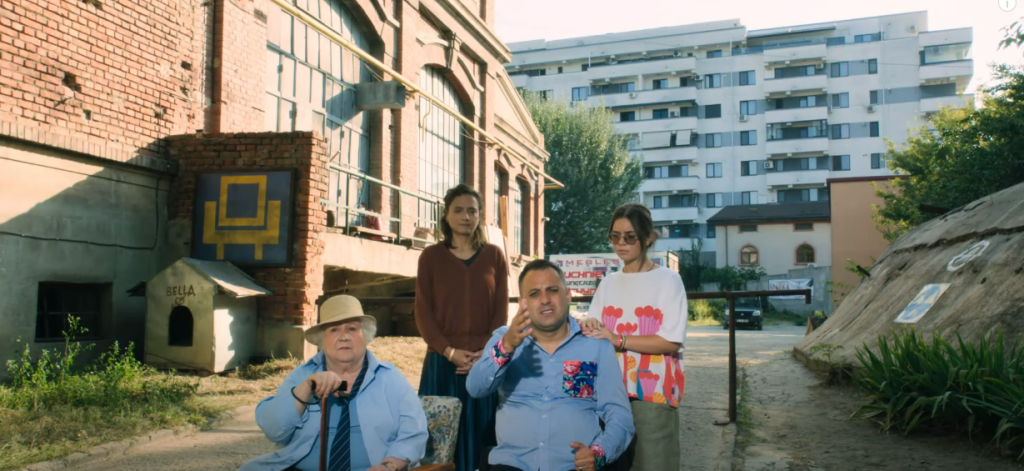
Corporate videos, despite directors’ aspirations, aren’t considered art. Yet, those involved are pressured to commit like dedicated artists, often working excessively long hours. The sacrifice of safety and sanity for art begs the question: is it worth it? Do those benefiting from our sacrifice even recognize or value it?
In “Do Not Expect Too Much from the End of the World,” a cynical satire by Romanian director Radu Jude, overtime is a recurring theme. Through the perspective of an exhausted production assistant, the film depicts how modern capitalism drains the vitality from ordinary individuals. The story highlights how corners are continually cut and workers are expected to do more with less. In Jude’s portrayal of the apocalypse, the decline is so gradual that it goes unnoticed until it’s too late, with billionaires prioritizing savings over the well-being of others, even down to a simple light bulb.
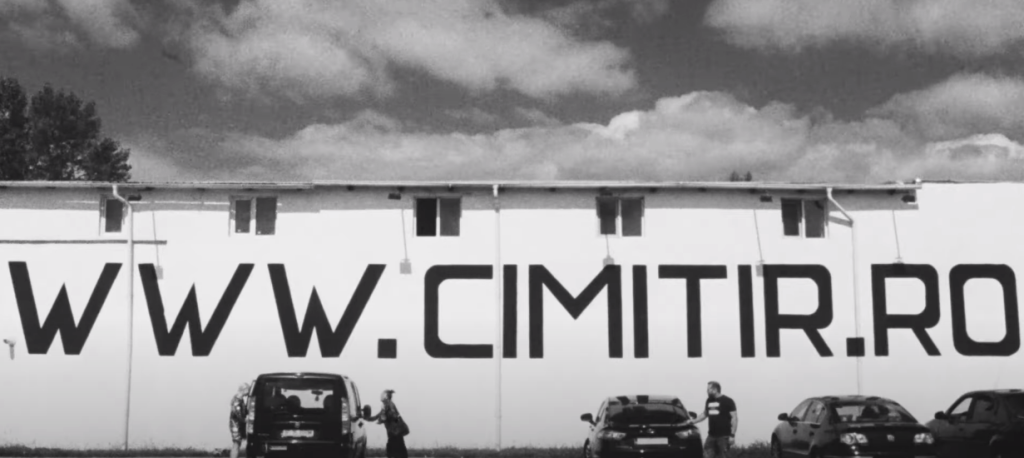
In the internet realm, the slow decline is termed “enshittification.” Jude’s film illustrates this with billboards invading cemeteries and consistently delayed paychecks. Angela, the overworked production assistant, faces these frustrations daily, starting her day before dawn and ending it well into the night. The film revolves around a single workday, largely spent by Angela stuck in traffic, adding to her mundane struggles.
Today, Angela is interviewing disabled factory workers for a workplace safety video, gathering their stories for her bosses to select the most pitiful one. She’s trusted in this role because she shares their background. Ultimately, she’ll be tasked with delivering the harsh news, including rejecting candidates like a German executive played by Nina Hoss, who finds one candidate too upsetting to consider.
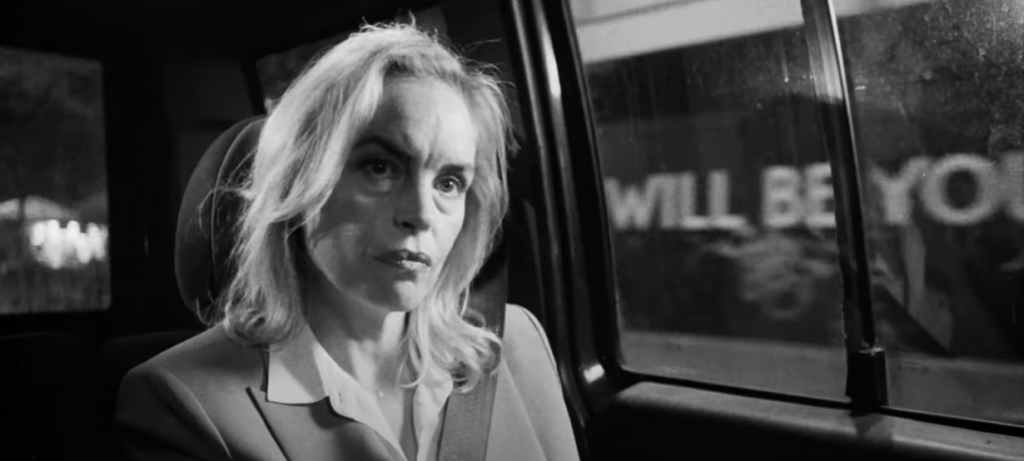
The climax of “Do Not Expect Too Much from the End of the World” is a brilliantly crafted single-shot sequence, appearing as raw footage for a safety video, where a struggling family comically undermines their own interests. Along the way, the film is filled with small humiliations, ironic twists, and references to pop culture, including a surreal appearance by Dr. Uwe Boll. Angela relies on energy drinks to stay awake amidst these absurdities. Interwoven with this are scenes from the 1981 Romanian film “Angela Drives On,” depicting an earlier Angela living a less stressful but not necessarily better life as a taxi driver in Ceaușescu’s Bucharest.
In “Do Not Expect Too Much from the End of the World,” Radu Jude’s approach subtly penetrates the audience, unlike his previous film, which could sometimes feel overly instructional. Angela’s habit of blasting loud music in her car seems to reflect the crassness of modern culture at first. However, later on, when asked to lower the volume, she reveals it’s a coping mechanism to stay awake while driving, not just a frivolous choice.
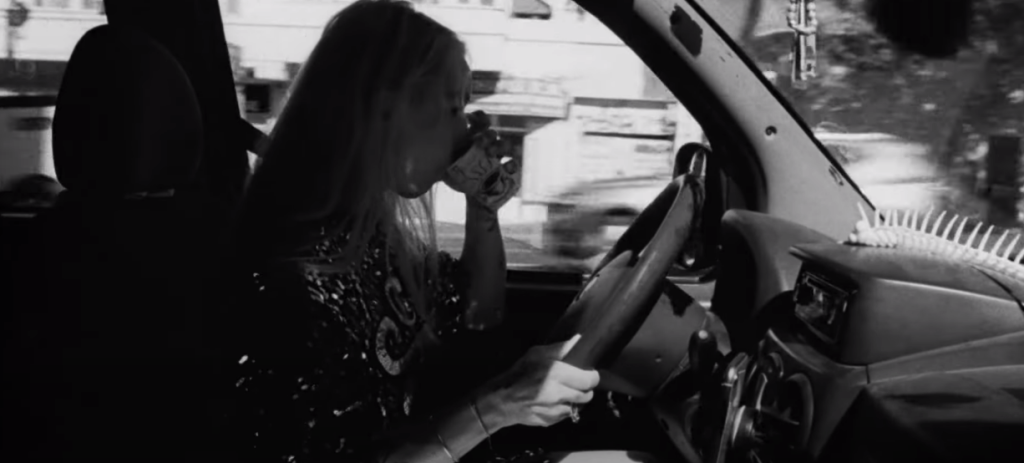
Nihilistic hedonism drives Angela’s online alter ego, Bobita, who embodies crude misogyny and idolizes figures like Andrew Tate and Vladimir Putin. Bobita represents the extreme crudeness of the world depicted in Jude’s films, reminiscent of “Bad Luck Banging.” While some of Angela’s acquaintances find Bobita amusing, others are offended. When questioned about her intentions, Angela compares herself to Charlie Hebdo, suggesting a provocative stance.
Is Angela genuinely expressing her comparison to Charlie Hebdo, or does it even matter? While she may engage in provocative behavior on platforms like TikTok, the real harm is perpetrated by seemingly respectable individuals who rationalize exploiting workers by blaming them for their own exploitation. In such a corrupt environment, it’s not surprising that only vulgar outcomes prevail.
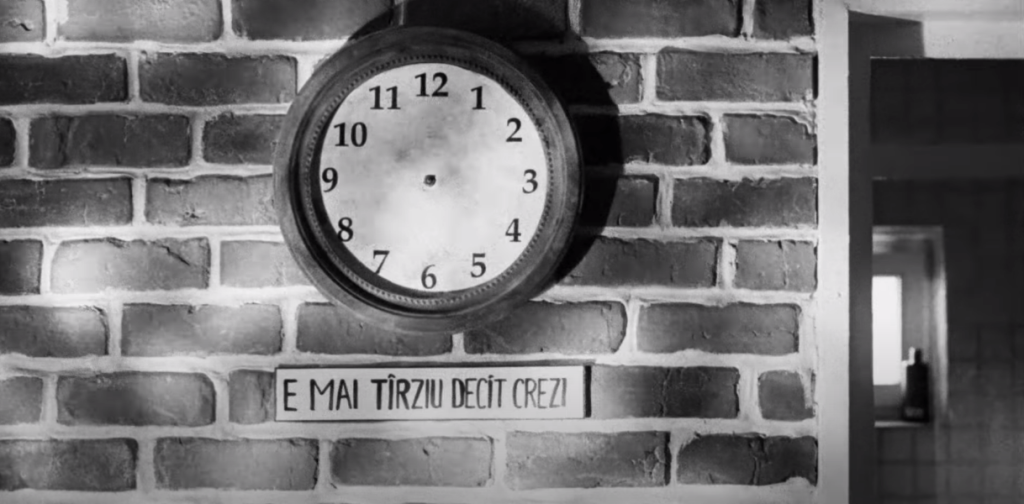
| Theme | Description |
|---|---|
| Corporate Pressure on Artistic Endeavors | Despite aspirations, corporate videos aren’t considered art, yet individuals are pressured to commit like dedicated artists, often sacrificing safety and sanity. |
| Capitalism’s Drain on Individuals | “Do Not Expect Too Much from the End of the World” portrays how modern capitalism drains vitality from ordinary individuals, with workers expected to do more with less. |
| Enshittification in the Internet Realm | The concept of enshittification illustrates the slow decline of the internet, depicted in Jude’s film with billboards in cemeteries and delayed paychecks. |
| Exploitation of Workers | Angela, the overworked production assistant, interviews disabled factory workers for a safety video, reflecting the exploitation prevalent in the industry. |
| Subtle Penetration of Themes | Radu Jude’s film subtly penetrates the audience with its themes, unlike his previous work, avoiding overt instruction. |
| Coping Mechanisms in Stressful Environments | Angela’s loud music in her car initially appears as a reflection of modern culture but is later revealed to be a coping mechanism for staying awake while driving. |
| Nihilistic Hedonism and Provocation | Angela’s online alter ego, Bobita, embodies crude misogyny and nihilistic hedonism, reflecting a provocative stance akin to Charlie Hebdo. |
| Rationalization of Exploitation and Vulgar Outcomes | In the face of exploitation, Angela’s behavior on TikTok may seem inconsequential compared to the harm perpetrated by those who rationalize worker exploitation. |

